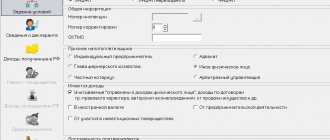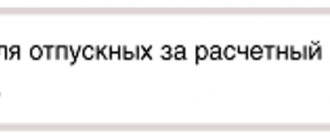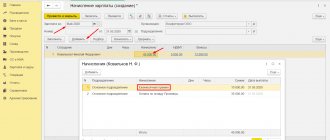Incentive payments can be part of the salary, or can be issued as additional accruals. From an accounting perspective, this is part of labor costs, the taxation of which is clearly stated in the Tax Code of the Russian Federation. But does the payment of bonuses always fall into this category?
Let's consider the usual situation with the taxation of bonus payments, as well as its nuances in cases where a certain tax risk arises in connection with incentive payments.
What the Tax and Labor Codes of the Russian Federation say
The Labor Code provides for the right to monetary incentives for employees (paragraph 4, paragraph 1, article 22 of the Labor Code of the Russian Federation, paragraph 1, article 191 of the Labor Code of the Russian Federation). The consolidation of the bonus regime in local documents is reflected in clause 2 of Art. 191 Labor Code of the Russian Federation, paragraph 2 of Art. 191 Labor Code of the Russian Federation. Finally, the possibility of accounting for these payments as part of remuneration for labor or another form of incentives is given in Art. 135 Labor Code of the Russian Federation.
Tax legislation regulates the payment of bonuses to employees as part of the company's profit expenses. Art. 25 of the Tax Code of the Russian Federation lists the purposes for which these funds can be used, and Art. 225 of the Tax Code of the Russian Federation approves a reduction of the tax base by this amount.
Prerequisites for including bonus expenses in labor costs:
- the bonus should be assigned and paid exclusively for achievements related to the employee’s professional employment;
- the conditions for receiving a bonus and the possibility of depreciation must be clearly regulated in the collective agreement or employment contracts of employees (you can make a reference to the Regulations on Bonuses in these documents), indicating the procedure for accrual and specific amounts.
If the paid bonus does not meet these conditions, then the Tax Code refers it to Art. 270, which speaks of the employer’s right to award staff remuneration for achievements that are not related to the employment contract and are not noted in it. Moreover, funds for their payment are taken not from the wage fund, but from target funds, special purpose funds or net profit at the end of the year (Letter of the Ministry of Finance of the Russian Federation dated October 19, 2007 No. 03-03-06/1/726).
Which premiums are not subject to contribution?
Let's take a closer look at which bonuses are not taxed:
| One-time bonuses dedicated to the holiday | Awards issued under a gift agreement |
| The question arises whether all bonus payments to employees of the organization are considered transferred within the framework of the labor relationship. There are, after all, incentive payments that have nothing to do with the successful completion of management tasks and work processes in general. All employees can simultaneously receive a certain amount of money on a holiday, be it an event celebrated by all citizens, or a professional holiday, or an internal holiday of the organization. This is a one-time bonus, the size of which will be the same for all employees, regardless of position, salary and professional achievements. It is especially important that all employees receive money equally, since if the amounts of payments are unequal, it will be obvious that bonus funds are still paid for the volume of work performed, and in this case, insurance premiums must be withheld. To the extent that holiday bonuses are not considered a reward for labor success, they are not related to working relationships, are not intended to motivate high-quality work, and therefore are not subject to insurance contributions. However, there are cases when local tax authorities oppose the non-taxation of holiday bonuses with insurance contributions, and the court takes their side, since it considers such payments to be an incentive to work and be loyal to superiors. | Federal Law No. 212-FZ states that a change of ownership of property on the basis of a civil contract is not recognized as subject to insurance contributions. Based on this, insurance premiums are not assessed on money given to an employee as a gift and formalized in an appropriate manner by drawing up a gift agreement. However, you should not get carried away with such savings, since regular cash gifts issued in this way can be regarded by employees of the Federal Tax Service as bonuses, and then you will not only have to pay all previously unaccrued insurance premiums, but also pay penalties and fines. |
Any payments to the following categories of citizens are not subject to contributions to compulsory pension insurance::
– prosecutors, investigators;
- judges,
– full-time students for classes in official student groups under labor or civil law agreements.
The bonus is for work, but not only
The bonus is an incentive payment included in the remuneration for work. If the company uses a bonus payment system, then the bonus will be an integral part of the money earned by the employee, regardless of how exactly he worked. It all depends on how this situation was regulated in the company’s internal regulations: employment contracts, collective agreement, specially created Regulations on bonuses, etc.
However, there are special types of payments that are not made on an ongoing basis, for example, remuneration paid to employees who participated in a successful project, or cash payments for certain holidays. It is impossible to foresee them in advance, therefore, it is also not possible to prescribe their regulations in local acts.
The taxation of bonuses related to the planned and unplanned groups is significantly different, since they are included in different accounting items.
Is the bonus considered employee wages?
According to Art. 255 of the Tax Code of the Russian Federation, the taxpayer’s expenses for wages include:
- any accruals to employees in cash and (or) in kind;
- incentives and bonuses;
- compensation accruals related to work hours or working conditions;
- bonuses and one-time incentive accruals;
- expenses associated with the maintenance of these employees, provided for by the legislation of the Russian Federation, labor agreements (contracts) and (or) collective agreements.
Thus, bonus payments are included in the employer's expenses necessary to pay employees. Regardless of the reason for paying a bonus to an employee, it is the employee’s income subject to taxation.
Read also ⇒ “Insurance contributions for an employee’s salary in 2022”
Taxes on stimulus payments
Let's consider the taxation of bonuses of the first group, recognized by the Tax Code of the Russian Federation as part of remuneration and recorded as such in the local documentation of the organization.
These funds reduce the employer's income tax base. The employer also has the right (not the obligation!) to apply regressive rates under the UST (Unified Social Tax) to these payments.
From the employee’s point of view, the bonus is income and therefore subject to mandatory personal income tax. There are several exceptions when payments to an employee will not be included in the personal income tax base:
- the employee received an international award;
- the award is for special achievements;
- the bonus was awarded to the employee by senior officials;
- the payment amount is less than RUB 4,000. per year (then it is regarded not as a bonus, but as a gift - Article 217 of the Tax Code of the Russian Federation).
In addition to personal income tax, profits, as part of income, are subject to mandatory contributions to the Pension Fund, Social Insurance Fund and Compulsory Medical Insurance Fund. Profits included in the exclusion group, that is, exempt from income tax, are not considered the basis for payment of insurance premiums.
NOTE! The execution of accounting documents is dated not on the day the bonuses are accrued according to the documents, but on the day when the funds are issued to the employee.
Is the premium subject to insurance premiums: the basis for calculating insurance premiums
The laws define the maximum limit of amounts subject to insurance premiums. At the moment these are the following values:
- To collect contributions to the Pension Fund: 796 thousand rubles;
- For contributions to the Social Insurance Fund: 718 thousand rubles;
- There are no limits set for health insurance contributions.
When the amount of cash receipts in favor of an employee of an enterprise (including any types of bonus payments) exceeds these numbers, the excess amounts are deducted from the accounting base for contributions to the Social Insurance Fund and continue to be subject to contributions to the Pension Fund, but at a reduced rate of 10%. When transferring contributions, the documents indicate the full amounts, down to kopecks.
Taxes on bonuses not provided for by local acts of the organization
The second group of payments that can be accrued to employees includes one-time bonuses not provided for in the Regulations on bonuses or the collective agreement (employment contract). This is an essential condition that allows you to include bonuses in labor expenses and reduce the employer’s tax base. If it is not met, then the payment falls under a fundamentally different taxation system.
This type of bonuses is assigned on the basis of a management order (order), which in the usual manner must be familiarized with the signature of the employees named in it.
The accounting reflection of these payments will be different depending on the source of funds for their accrual:
- expenses for ordinary activities;
- other expenses.
What if we regulate these payments?
To reduce the tax base, entrepreneurs can take into account irregular payments in local acts. For example, in the documents you can indicate regular bonus payments to employees on March 8 or the New Year, upon reaching an anniversary date, etc. Such bonuses cannot be called production bonuses, but with a certain “favor” of the tax authorities, they can be justified as stimulating.
Even in such a situation, personal income tax and mandatory insurance contributions are charged on the amounts of these payments.
However, by law, one-time bonuses that are not assigned for labor performance cannot be included in profit expenses, so the risk of a legal dispute with tax authorities with an unknown outcome cannot be excluded.
ADVICE FOR EMPLOYERS. In order to avoid tax risk, the maximum number of payments to employees must be regulated as payment for labor, correctly substantiating this in the employment (collective) agreement and/or Regulations on bonuses. You can include in these documents the convenient wording “The employer reserves the right to reward the employee at its discretion.”
Personal income tax on bonus
Since bonuses are awarded to employees as part of an employment relationship, all types of bonuses are subject to personal income tax without exception.
Personal income tax is withheld on the date the employee receives income. For bonuses for production performance, this is the last day of the month for which it is accrued. Rewards for holidays and anniversaries are considered received on the day they are paid.
The law provides for several types of incentive payments from which there is no need to withhold income tax - these are international and Russian awards for achievements in the field of science, culture, education, literature and other areas (clause 7 of Article 217 of the Tax Code of the Russian Federation). A complete list of such payments is given in Decree of the Government of the Russian Federation dated February 6, 2001 No. 89.
Can an employer reward himself?
The awarding of bonuses to senior management is of a special nature. Rewarding top executives can only be done by business owners, since it is they who ultimately own the net profit. In all other situations, the manager does not have the right to sign an order on his own bonus. Otherwise, such an incident will become a reason for tax proceedings with the almost inevitable recognition of such a monetary transaction as an unjustified tax benefit.
What needs to be done to minimize tax risks on premiums
So, let’s summarize regarding the taxation of bonus payments to employees.
- Payments of a production nature are justified by local acts of the enterprise.
- One-time bonuses may or may not be provided for in regulatory documentation.
- Both production and one-time payments are subject to personal income tax and insurance premiums (except for cases recognized by law as exceptions).
- Production bonuses reduce the employer's income tax base, but one-time bonuses do not.
- To protect yourself from tax risks, an employer should:
- carefully develop the Regulations on bonuses or prescribe the mechanism for calculating bonuses in the collective agreement (employment contracts);
- try to justify the maximum number of additional payments to employees as bonuses for work;
- take care of proper documentation of bonuses (compliance with the designated bonus criteria, their transparency and unambiguous interpretation, execution of a one-time incentive by order, financial justification, correct accounting entries, etc.).
Accounting for taxation of premiums by insurance contributions: entries
Let's take a closer look at the accounting for the taxation of premiums by insurance contributions:
| Submitting reports on insurance premiums | ||
| Fund | In paper form (When the number of employees in the organization does not exceed 25 people) | Electronically (For enterprises employing 25 people or more) |
| Deadlines for sending reports | ||
| FSS | no later than the 20th day of the month following the tax quarter | no later than the 25th day of the month following the tax quarter |
| Pension Fund | by the 15th day of the second month after the end of the quarter | by the 20th day of the second month after the end of the quarter |
Accounting entries:
- Calculation of insurance premiums, deduction of insurance payments from accidents and occupational diseases from the premium
DEBIT 91-2 CREDIT 69-1
- Calculation of contributions to extra-budgetary funds, deduction of payments to the pension fund, social insurance fund and health insurance fund
DEBIT 08(91-2) CREDIT 69-1(69-2, 69-3)




